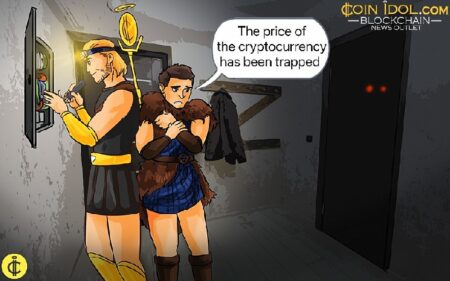- Ethereum faces record-low community sentiment due to scalability issues and a perceived lack of leadership focus.
- High gas fees and network congestion drive users and developers to explore alternative blockchain platforms.
- Critics urge Ethereum to prioritize effective scaling solutions to retain its position in decentralized finance.
Ethereum, a major name in decentralized finance, is facing unprecedented criticism from its community. Long celebrated for its potential to transform the blockchain industry, Ethereum now finds itself at the center of a debate over its leadership and scalability.
Consequently, crypto attorney John Deaton has highlighted a significant drop in support for Ethereum. He stated that community sentiment is at its lowest in nearly a decade.
I’ve been in crypto for almost 9 years. I’ve never witnessed ETH sentiment so low. I’m not just talking about Kyle’s post alone. I keep see post after post of people who used to be ETH’s biggest supporters moving on. https://t.co/WqrFKOfVlk
— John E Deaton (@JohnEDeaton1) January 21, 2025
Leadership and Scalability Issues Spark Concern
Kyle Samani, co-founder of Multicoin Capital, has shared his growing disillusionment with Ethereum’s trajectory. Initially an advocate, Samani revealed his concerns began at Ethereum’s Devcon 3 in 2017.
Additionally, he attended the event with hopes for a clear strategy to tackle scalability challenges. Instead, he was disappointed by what he described as a lack of urgency and focus from Ethereum’s leadership.
Samani noted that leadership within the Ethereum Foundation failed to prioritize scaling at a critical time. His concerns remain, as he believes little has changed since that turning point. This sentiment resonates with many in the Ethereum community, who are frustrated by the platform’s slow progress in addressing scalability.
Scaling Challenges Persist Despite Ethereum 2.0
Notably, scalability has been a persistent challenge for Ethereum. High gas fees and network congestion continue to frustrate users and developers.
While Ethereum 2.0 introduced proof-of-stake and sharding, progress has been gradual, many argue these measures fall short of meeting the platform’s scalability needs.
Consequently, developers and users have started exploring alternative platforms that offer lower costs and improved scalability. This shift underscores the urgency for Ethereum to deliver effective solutions. Failing to address these concerns may weaken its position in the competitive blockchain space.
Calls for Strategic Action
Critics, including prominent voices in the industry, have called for a more proactive approach from Ethereum’s leadership. The platform’s ability to innovate and adapt is seen as vital to maintaining its relevance. Many believe that resolving scalability issues is critical for Ethereum’s future.
Therefore, the criticism reflects a broader challenge facing Ethereum. Its ability to regain community trust depends on demonstrating a commitment to tackling its most pressing issues.
Read the full article here









